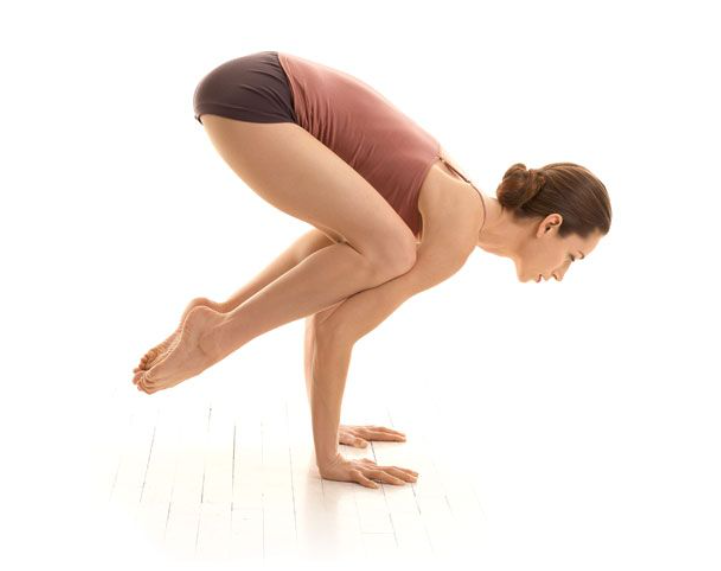Disclosure: This post may contain affiliate links. If you purchase through these links, we may earn a commission at no additional cost to you.
Entering a New Chapter with Compassion
Postpartum life can feel like living in a body you barely recognize. Hormones continue their rollercoaster ride, sleep arrives in fragmented snippets, and the core that once felt powerful now feels unfamiliar. The goal of this guide is not to get you “back” to anything. It is to help you move forward—one breath at a time—toward steadier energy, a soothed nervous system, and a self-care routine that fits beside diaper changes and midnight feedings.
We will blend science, Ayurveda, somatic therapy, and trauma-informed yoga principles so you can curate your own energy lab. Use the modules like puzzle pieces: mix and match to fit your schedule, your medical clearance, and your emotional bandwidth on any given day.
Energy rebuild is not a race. It is a conversation between your breath, body, and daily demands.
Core-Friendly Principles to Honor
- Exhale on effort: Every time you lift, rise, or engage, exhale to protect the pelvic floor and co-activate deep abs.
- Keep the rib cage stacked over pelvis: Prevents pressure from pushing downward and worsening diastasis recti.
- Opt for progressions: Begin with supine or seated variations before moving to kneeling or standing poses.
- Pause if dizziness or bleeding increases: Respect red flags and consult your care provider.
- Fuel before you flow: A small protein-and-carb snack stabilizes blood sugar for more consistent energy.
6–8 Weeks
Recommended waiting period after vaginal birth before moderate exercise (with doctor approval).
12+ Weeks
Typical timeline for adding light strength work post C-section (clearance required).
3 Anchors
Daily priorities: hydration, breath reset, and one restorative posture.
Energy Map: Morning, Midday, Evening
Instead of waiting for an uninterrupted hour, layer energizing practices throughout the day. Here is a sample energy map:
- Morning (8 minutes): Pelvic-floor activation + diaphragmatic breath.
- Midday (5 minutes): Standing mobility break with resistance band rows.
- Evening (20 minutes): Full Vitality Flow with restorative savasana.
This modular approach keeps energy consistent while respecting your responsibilities. Miss a segment? You still offered your body something nourishing.
Morning Spark: Breath + Core Awakening (8 minutes)
- Supine 360° Breath (2 minutes): One hand on ribs, one on belly. Inhale as ribs expand, exhale through pursed lips while engaging pelvic floor gently upward.
- Heel Slides with Exhale (2 minutes): Lie on back, knees bent. Slide one heel away while exhaling and drawing navel toward spine without doming. Repeat 10 per side.
- Tabletop Cat-Cow (2 minutes): Inhale arch, exhale round while lifting pelvic floor. Move slowly to sense deep core support.
- Kneeling Heart Opener (2 minutes): Sit on heels, interlace fingers behind back, lift chest as you inhale, release shoulders as you exhale.
Midday Booster: Standing Strength Snack (5 minutes)
- Wall Angels (1 minute): Stand with back to wall, slide arms overhead keeping ribs tucked.
- Resistance Band Row (2 minutes): Loop band around sturdy anchor, exhale as you row, pinch shoulder blades, inhale to release.
- Supported Chair Pose (1 minute): Hold the back of a chair, sit hips back, exhale to rise.
- Lateral Lunges (1 minute): Step side-to-side, weight shifting, keep exhale on exertion.
These micro sessions combat slumped-feeding posture, wake up posterior chain muscles, and deliver a burst of endorphins without overwhelming tired joints.
Evening Vitality Flow (20 minutes)
- Supported Child’s Pose (3 minutes): Knees wide, bolster under chest. Integrate slow nasal breathing.
- Side-Lying Clamshells (2 minutes): Loop mini band above knees, exhale lift, inhale lower. Switch sides.
- Bridge with Ball Squeeze (3 minutes): Pilates ball between knees. Lift hips on exhale, release slowly.
- Low Lunge with Side Bend (3 minutes): Hands on thigh or blocks. Stretch psoas without collapsing low back.
- Wide-Knee Forward Fold (2 minutes): Seated, fold over bolster for hip release.
- Thread the Needle (2 minutes): In tabletop, reach arm under body, hold, switch sides.
- Legs Up the Couch (3 minutes): Calves on sofa, arms overhead, breathe into rib cage.
- Reclined Savasana with Body Scan (2 minutes): Finish with a guided affirmation: “I rebuild with patience. My energy returns.”
If baby wakes mid-flow, pause and return later. Showing up imperfectly keeps the habit alive.
Focus on low-impact movements that encourage circulation, lymphatic flow, and confidence in every transition.
Six-Week Energy Rebuild Roadmap
Week
Focus
Key Practices
Energy Check-In
1
Foundations
360° breath, pelvic floor lifts, daily walks
Track sleep quality (1–5) + hydration
2
Soft Strength
Bridge progressions, seated twists, gentle band rows
Note midday crashes + triggers
3
Mobility
Hip openers, thoracic rotations, standing balance
Measure mood shifts before and after flow
4
Intensity Tweaks
Add light ankle weights, increase reps gradually
Assess readiness for longer walks or stroller hills
5
Endurance
Combine morning + evening segments twice weekly
Evaluate energy consistency across the day
6
Integration
Introduce playful flows, partner stretches, baby-and-me yoga
Celebrate wins; schedule follow-up with physio/OB
Breath Library for Every Emotion
When Overwhelm Hits
Practice Box Breathing (4-in, 4-hold, 4-out, 4-hold) while visualizing corners of a square. Do 4 rounds to slow mental chatter.
When Fatigue is Crippling
Try Kapala Bhati Lite: short, gentle exhales through the nose for 30 seconds followed by a deep inhale. Avoid if diastasis recti or pelvic floor issues persist—wait until cleared by a specialist.
When Anxiety Spikes in the Evening
Use Humming Bee Breath (Bhramari): inhale normally, exhale with a gentle hum. Vibrations calm the vagus nerve and reduce racing thoughts.
Nutrition & Supplement Support
Postpartum energy is a collaboration between movement and nourishment. Focus on:
- Protein at every meal to repair tissue and stabilize blood sugar. Aim for 0.8–1 gram per pound of body weight (consult your provider if breastfeeding).
- Iron + Vitamin C pairing: Spinach + citrus or lentils + bell peppers to combat postpartum anemia.
- Hydration anchoring: Fill a 32-ounce bottle each morning; finish by midday, then refill. Add electrolyte powder if nursing.
- Omega-3 fats: Reduce inflammation and support mood (chia pudding, flaxseed, fatty fish, or supplements cleared by your doctor).
“Postnatal yoga taught me that energy is earned in the margins—five minutes of breath, half a cup of warm bone broth, six deep inhales before nursing. Those micro choices add up.” — Alicia, HealthHub community member
Build a Support System Around Your Practice
Partner/Family Role
Ask for dedicated “flow time” thrice weekly. Share the why—more energy benefits the whole household.
Health Team
Schedule regular check-ins with pelvic floor specialists, lactation consultants, or mental health professionals.
Peer Community
Join virtual mom circles or local baby-friendly yoga classes to stay motivated and exchange reality-tested tips.
Mindful Tech Use
Use habit apps for hydration reminders, sleep tracking, or guided meditations but set nightly device curfews.
C-Section & Pelvic Floor Modifications
Gentle does not mean passive. Customize sequences with these considerations:
- Scar mobilization: After 6–8 weeks (with approval), lightly massage around the incision using vitamin E or silicone-based oil to prevent adhesions.
- Supine support: Place a folded blanket under head and shoulders to reduce pulling on the scar when lying down.
- Kneeling caution: Use cushions under knees to accommodate lingering numbness or sensitivity.
- Diastasis check: If separation exceeds two fingers width, avoid planks, full push-ups, or crunching motions until strengthened.
Tending Mental Health Alongside the Mat
Yoga is part of the toolkit, not the entire solution. Monitor mood using simple markers:
- How often do tears feel unmanageable?
- Are anxiety spikes preventing basic daily tasks?
- Do intrusive thoughts persist longer than a few minutes?
If the answers raise concern, reach out to your healthcare team immediately. Postpartum depression or anxiety is treatable, and seeking help is a sign of strength. Combine therapy, support groups, and medication (if prescribed) with your yoga practice.
Sleep Hacks for Exhausted Parents
Energy rebuild hinges on sleep. When nights are unpredictable:
- Split the night: Have your partner take the first feed shift while you sleep 8 PM–12 AM.
- Power naps: 20-minute afternoon naps accompanied by legs-up-the-wall to avoid grogginess.
- Blue light blockers: Wear amber glasses after sunset; switch screens to grayscale to reduce stimulation.
- Pre-sleep mantra: “My body repairs even in short stretches of rest.” This reframes fragmented sleep as restorative.
Postnatal Yoga FAQ
When can I start these practices?
Begin breath and pelvic floor awareness immediately after birth, as comfort allows. Wait for medical clearance—typically 6 weeks after vaginal delivery and 8–12 weeks after C-section—before more active exercise.
How do I measure progress?
Track energy scales (1–10), mood journals, pelvic floor strength (ability to hold gentle contractions), and functional wins (lifting baby carrier without back strain).
Can I practice with baby?
Yes. Integrate baby-massage time, stroller walks, and mom-and-me yoga to keep bonding strong and make use of short windows.
What if I miss a week?
Start again with breath and foundational movements. Think “re-entry” not “restart”—your body remembers, and habits rebuild quickly when supported by compassion.
Copy Link Share Tweet Pin
0 Upvote if you are saying yes to energy, grace, and slower mornings.
Topics:
HealthHub Team
Wellness expert and certified instructor sharing evidence-based health tips and practical fitness advice to help you live your healthiest life.



